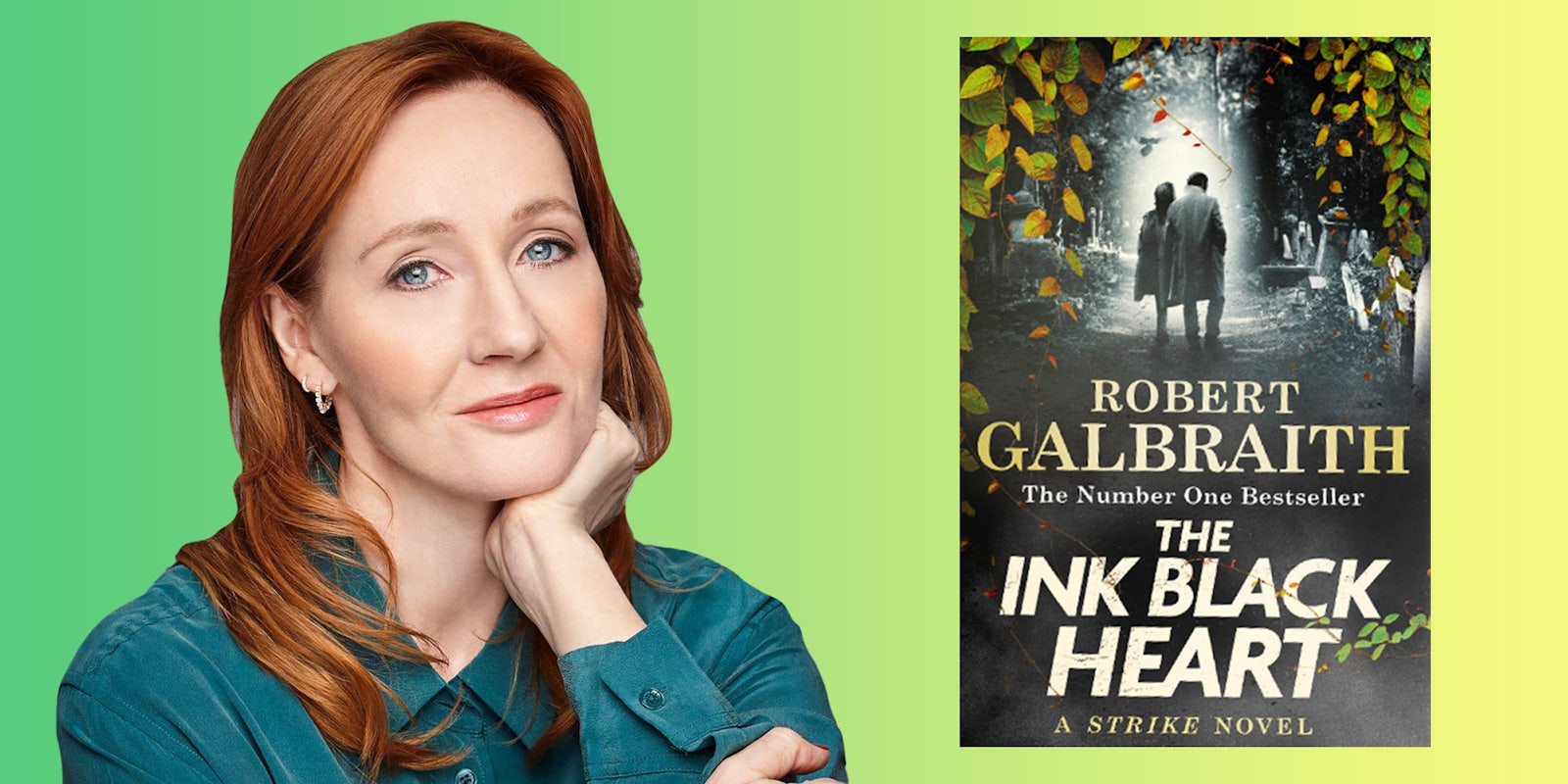J.K. Rowling‘s latest book, The Ink Black Heart, clocks in at 1,024 pages—an astounding length for a crime thriller.
It also appears to mark a turning point in her creative output, because while the previous Cormoran Strike novels were received as straightforward detective stories, this book clearly draws from Rowling’s own life. And it does so in a controversial manner, echoing the author’s forays into transphobia and the resulting backlash she’s received on Twitter.
The Ink Black Heart is a cancel-culture narrative about a YouTuber named Edie Ledwell, who faces vitriolic accusations of posting racist, ableist and transphobic content. She ends up being murdered, prompting an investigation into her online haters, who previously doxxed her and made rape threats in response to her supposedly-offensive YouTube content.
This concept quickly attracted criticism due to the way it reverses the power dynamic of transphobic and racist abuse. It’s easy to interpret Edie Ledwell as a self-insert character, embodying the way Rowling perceives her own experiences on social media, viewing her critics as a threatening mob.
Much has already been written about Rowling’s links to the UK’s anti-trans movement, and the way she reacts to online criticism as a high-profile public figure. But in addition to these critiques of The Ink Black Heart‘s political themes, it’s also facing pushback for some basic formatting and storytelling choices, with readers highlighting the way it includes pages and pages of harassment tweets:
In a thread remarking that “this is what happens when a novelist spends too much time on social media,” journalist Nathan J. Robinson shared a series of viral screencaps from the novel, highlighting the sheer volume of tweets it includes. Rowling singles out hateful messages from Twitter users who identify as disabled or neuroatypical, taking aim at the kind of social justice warrior stereotypes you’re more likely to see on 4chan.
Regardless of whether you agree with Rowling’s views, these pages of hate tweets don’t look particularly fun or interesting to read. And according to many of the top reviews on Amazon, they’re not even possible to read on Kindle. The tweets are too small, and readers aren’t able to zoom in.
J.K. Rowling’s divisive reputation was always going to influence this book’s reception, as evidenced by its polarized ratings on Goodreads. Most of the reviews either rate it at five stars (from commenters who appear to support Rowling on a personal level) or one star (from people who oppose her). It’s unclear how many of them have actually read the book, which only came out two days ago. However, if we look at reviews from mainstream outlets like the Times and the Telegraph, the critics seem underwhelmed, calling out the novel’s gargantuan length and awkward parallels to Rowling’s Twitter habits.
There’s long been speculation that Rowling is “editor-proof,” receiving free rein to write whatever she wants—at whatever length she wants—because her books are automatic bestsellers. The Ink Black Heart seems like solid evidence of this theory. An average crime novelist wouldn’t get away with submitting a manuscript that’s literally twice the typical length, not to mention the way Rowling uses this book to exorcise her personal online feuds.
Basically, it’s a very weird book to write and publish when you’re a rich and powerful celebrity, emphasizing the idea that Rowling is deeply obsessed with toxic online conflicts. Writers often talk about how spending too much time on Twitter is a brain-rotting, priority-warping waste of time, and it’s hard to imagine a more direct example than this.


